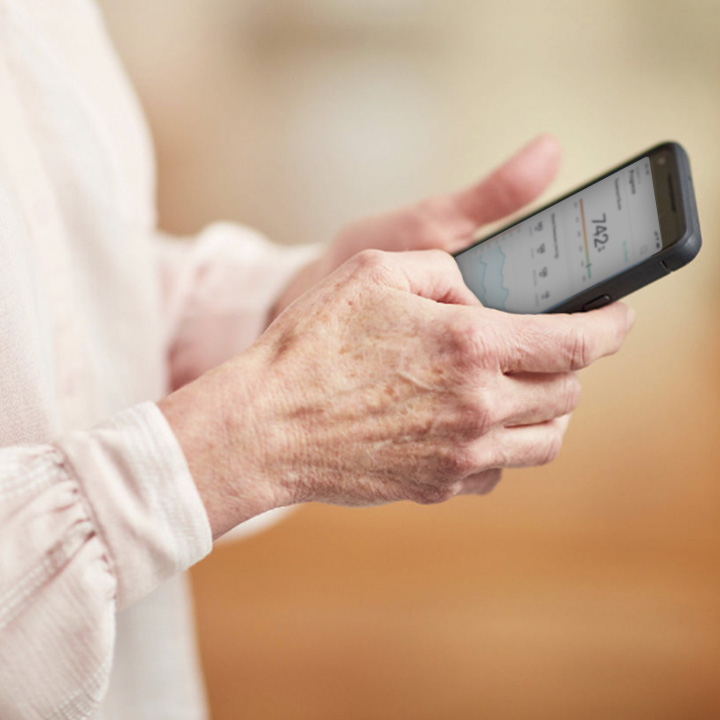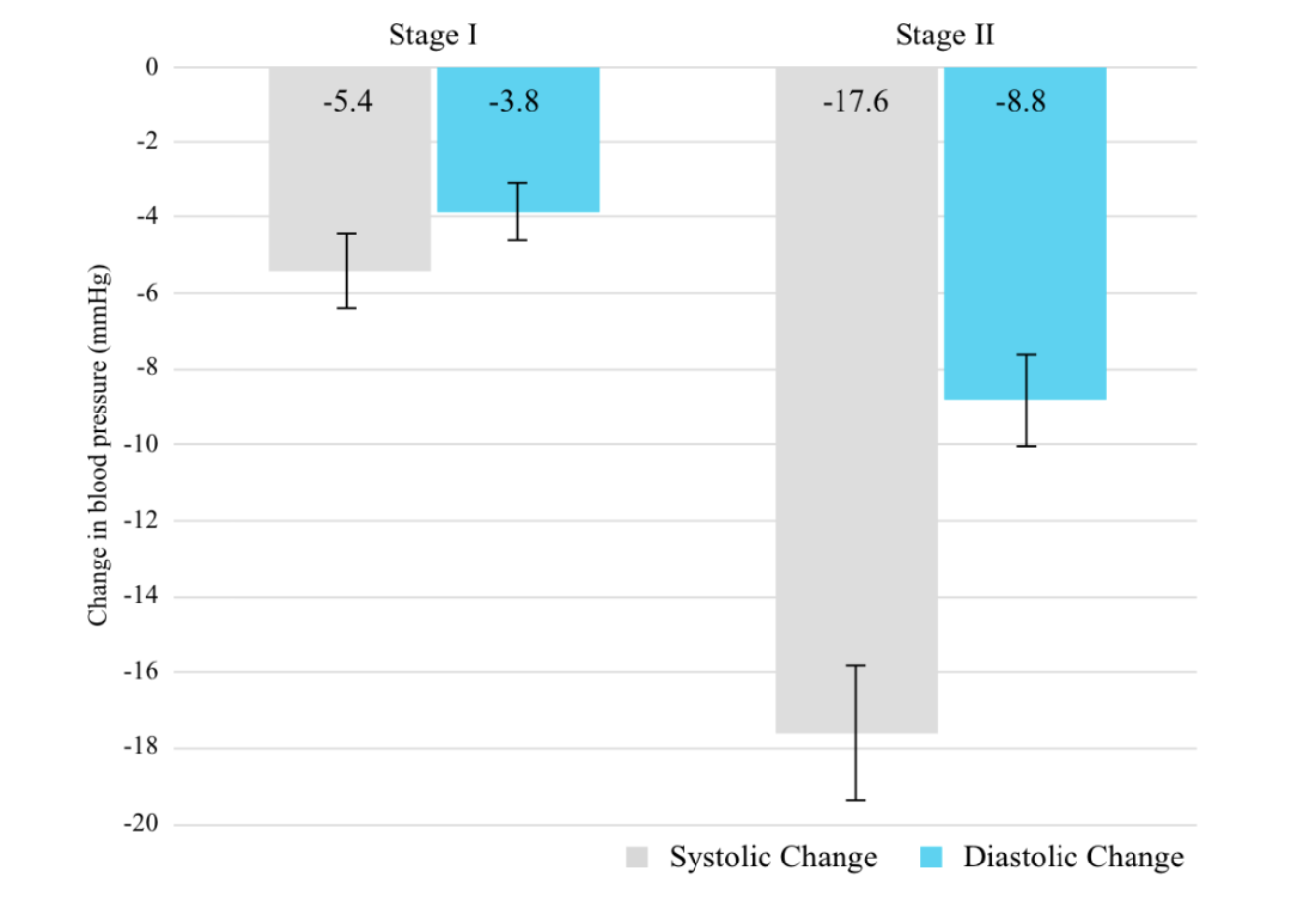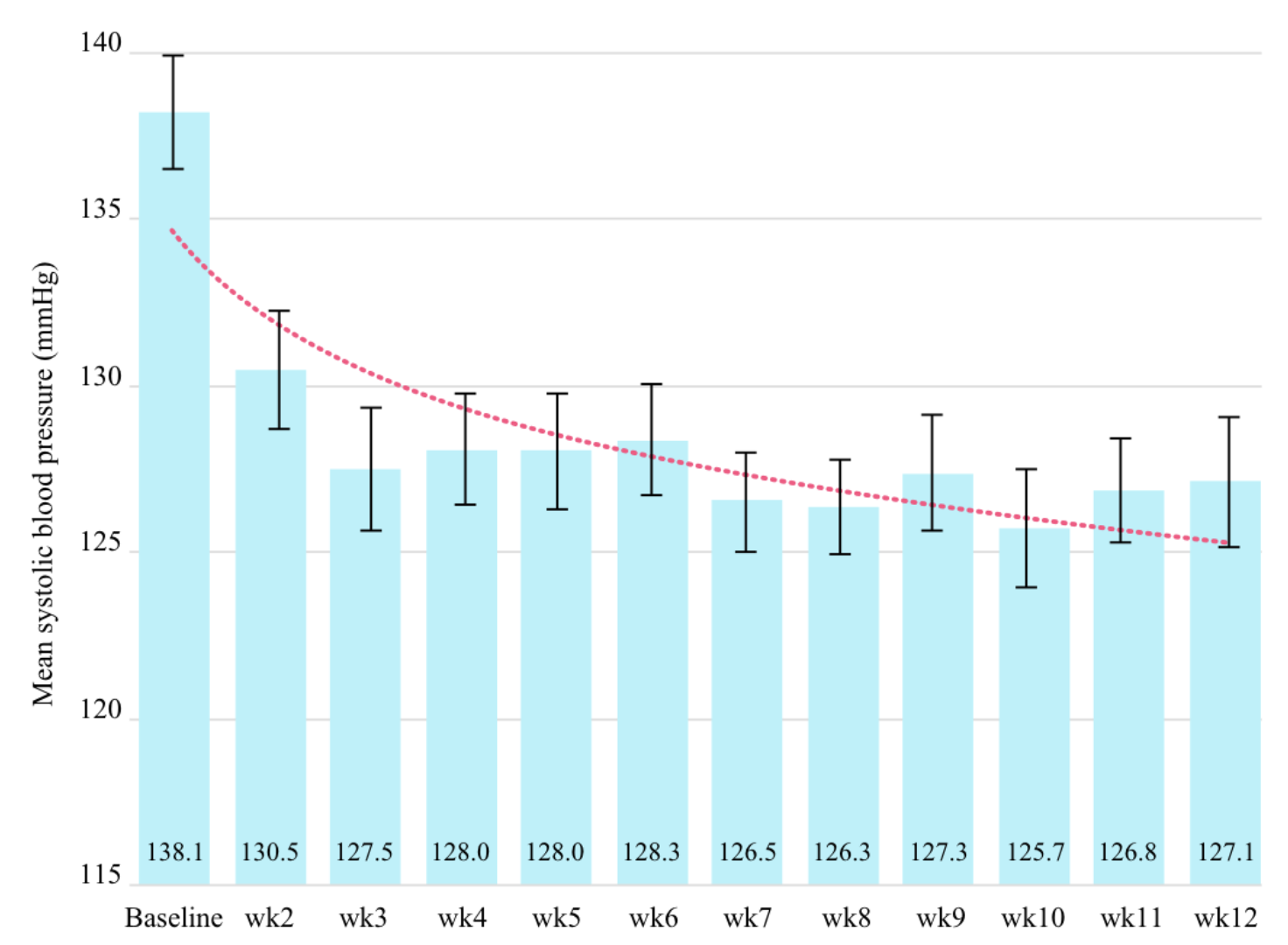Clinical Study Demonstrates Ability to Rapidly and Meaningfully Lower Blood Pressure

Today, Better announced the publication of its latest peer-reviewed clinical study in hypertension, titled "Achieving Rapid Blood Pressure Control With a Digital Therapeutic: A Retrospective Cohort and Machine Learning Study." The study was published in JMIR Cardio.
Study Highlights
In a 12-week, Institutional Review Board-approved study of 172 adults with hypertension using Better’s digital therapeutic, blood pressure reduction was clinically meaningful and achieved rapidly in a majority of the studied participants. Greater improvement was observed in participants with more severe hypertension at baseline.
Mean change was –11.5 mmHg for systolic blood pressure and –5.9 mmHg for diastolic blood pressure over an average period of 63 days, a degree of reduction associated with a 40% lower risk of death from stroke and 30% lower risk of death from ischemic heart disease.
Among participants with more severe (stage 2) hypertension, mean change was –17.6 mmHg for systolic blood pressure and –8.8 mmHg for diastolic blood pressure. During the 12 week study period, 43% of the participants achieved the 2017 American College of Cardiology/American Heart Association (ACC/AHA) definition of blood pressure control (<130/80).
Background
According to the ACC/AHA, 46% of US adults have hypertension, or high blood pressure. High blood pressure is the leading contributor of preventable death worldwide and is due, in large part, to poor quality diets and sedentary lifestyles. Despite the array of antihypertensive medications available for the past several decades, only half of those with hypertension have well controlled blood pressure. In addition to pharmacotherapy, clinical guidelines in the United States and worldwide call for the initiation of behavioral therapy focused on diet and lifestyle for all patients with hypertension, because it is known that lifestyle changes can effectively reduce blood pressure while improving other cardiovascular risk factors, without negative side effects. However, there are currently few prescription solutions available to physicians for initiating behavioral therapy in patients.
The Study
A study was conducted to examine the effect of Better’s digital therapeutic on blood pressure in adults with hypertension and to explore the ability of machine learning to predict participant completion of the intervention.
Partial Results
75.0% of participants had a clinically meaningful improvement in blood pressure, defined as a decrease in systolic blood pressure (SBP) of ≥5 mmHg or decrease in diastolic blood pressure (DBP) of ≥2.5 mmHg. The mean change from baseline was –11.5 mmHg for SBP and –5.9 mmHg for DBP, with an average time between starting and ending values of approximately 9 weeks (63 days). Participants with stage 1 hypertension saw a decrease of -5.4 mmHg in SBP and a decrease of -3.8 mmHg in DBP. Participants with more severe (stage 2) hypertension saw a larger decrease in blood pressure with SBP decreasing by -17.6 mmHg and DBP decreasing by -8.8 mmHg.
Observed change in blood pressure by baseline category

Although the blood pressure continued to decline throughout the intervention period, the rate of decline was approximately 5 times greater in the first 6 weeks than in the following 6 weeks.
Mean systolic blood pressure over time

Conclusions
Reductions in blood pressure were observed among adults with hypertension using Better’s digital therapeutic. The degree of blood pressure reduction was clinically meaningful and achieved rapidly by a majority of participants. Greater improvement was observed in participants with more severe hypertension at baseline.
